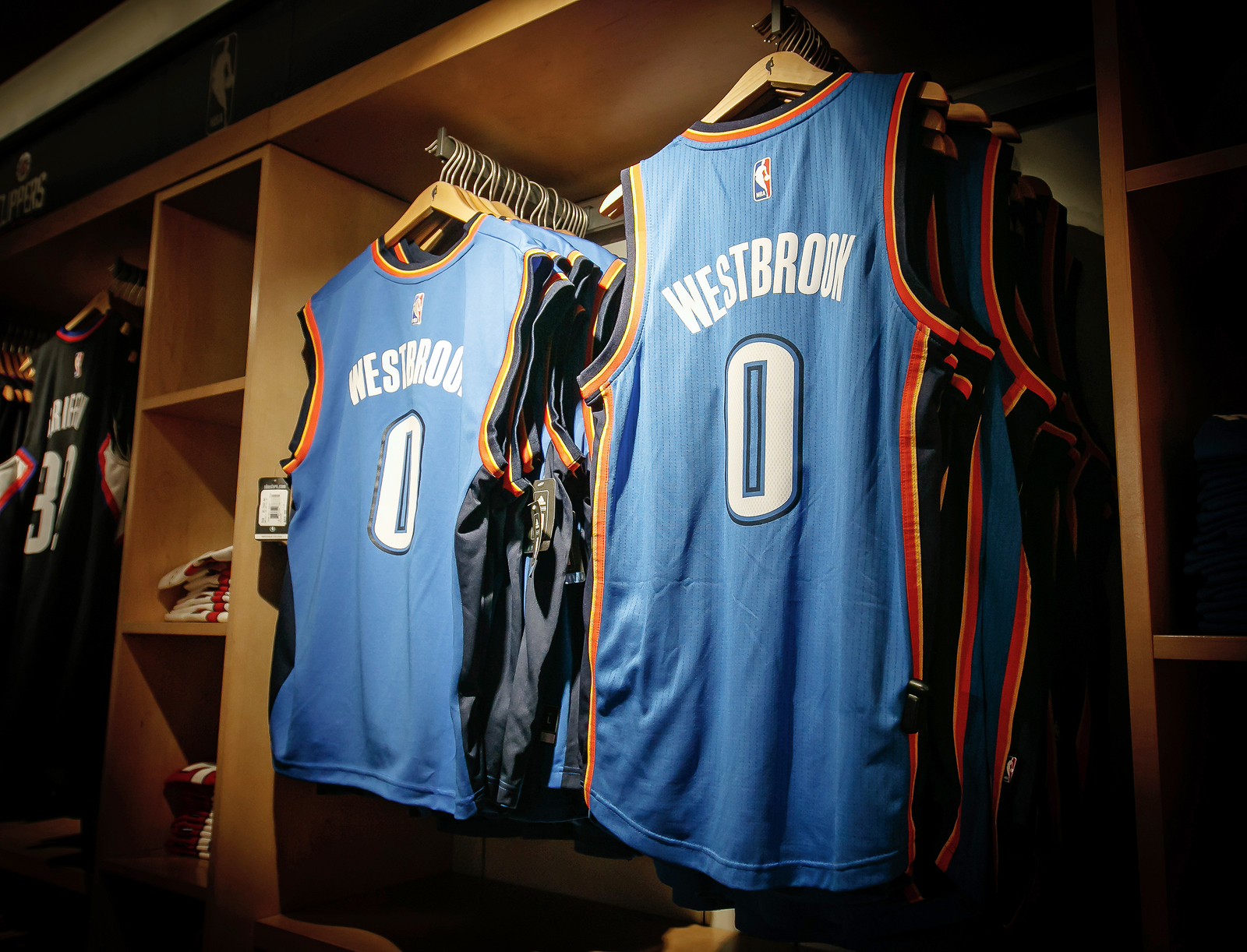
by Brian Hobbs | Jan 17, 2018
A few years ago, our family had a major medical emergency. The outpouring of prayer support we received from our church family and others—including people we didn’t know—was truly amazing.
Throughout the ordeal, I found myself especially encouraged by notes of prayer that were personalized. These days, I try to keep this in mind when I see others enduring trials and matters that can be lifted up to the LORD in prayer.
For example, someone you know comes down with cancer or a serious illness. They take to Facebook to let the world know. Too many times, we see it and simply post the words “praying for you” and keep scrolling.
Instead of merely commenting “Praying for you,” we could:
- Stop what we are doing and truly offer up a prayer to the LORD.
- Offer a more personalized prayer to God, then send the words by direct message, text, letter or other means to the person.
- Make yourself a note to remember the person daily.
Too often social media caters to the immediate. Those few precious moments we might have spent in prayer, we move on to the next post to see what entertaining, funny or outrageous thing we might see next on social media.
In doing this, I/we need to guard against pride and hypocrisy, the type of praying in public that Jesus warned about (Matt. 6:5). At the same time, what if your “praying for you” comment sounded more like this prayer?
“Heavenly Father, we praise You. I lift up to You now my friend (Name). During their time of affliction, please send relief. We pray for their full healing, and we ask that Your will be done on earth as it is in heaven. Glorify Yourself, O LORD, during their trial, and let them come into the open places where Your blessings abound. In Jesus’ Name, amen.”
How much more would this mean to the person—and perhaps even to the LORD—if we took our “praying for you” to the next level?
While I am thankful for each and every show of support and prayer I have received during trials in my life, I will always remain especially grateful for those who went out of their way to pray without ceasing, and with great fervency.

by Brian Hobbs | Dec 27, 2017
It’s college football time in America! Dozens of bowl games are happening over the holidays, and I, for one, could not be happier about it.
Here are four things I appreciate about college football bowl season:
- Keeping it local. From the Cotton to the Fiesta to the Camping World Bowl, each has a unique and local flavor. In an age that is becoming more standardized and monolithic in some ways, it is refreshing that each bowl and its related activities—such as the Rose Parade at the “Granddaddy of them all”—we can be encouraged that each city, state and locality can embrace and display what is unique to that area.
- Encourages healthy competition. Not everybody likes football. Some prefer baseball or hockey. Still others prefer tennis or gymnastics or pickle-ball. Regardless, we must take our hats off in appreciation to the time and effort invested by each of these players at all level to arrive at this achievement. It is truly remarkable what healthy competition can enable people and groups to strive toward. While football has its flaws, it does bring this virtue of healthy competition and striving for excellence.
- Not everybody is a winner. I have spent much time around youth sports that tout “winner-less games,” wherein no one keeps score. Truth be told, the kids are already keeping scores. While we need to teach young people—and ourselves—that winning isn’t everything, there is something good in working toward victory and learning from defeat. With college football bowls, too, there are many winners, not just one. Isn’t that a lot like life?
- Team over individual. Tennis is one of my favorite sports that is primarily individual effort. That being said, team sports have an inherent benefit that solo sports don’t. When one player does well, it’s a victory for the whole team. When one struggles, we all struggle. In this way, team sports are applicable to family life and to church life. There are, after all, no lone ranger Christians.
In the end, spectator sports like college football are just one aspect of life and society. But they are one aspect that have importance today and during the time of the Apostle Paul, who sometimes used sports analogies to communicate the Gospel. He said, “I have fought the good fight, I have finished the race, I have kept the faith” (2 Tim. 4:7).
To all those college football players and fans out there, through Jesus Christ and His saving work on the cross, we can obtain a glory in heaven that is far greater than the gridiron. That truly is something that should make us cheer.

by Brian Hobbs | Nov 29, 2017
Saturday Night Live’s “Deep Thoughts by Jack Handy” once hilariously said, “If the Vikings were around today, they would probably be amazed at how much glow-in-the-dark stuff we have, and how we take so much of it for granted.”
If you stop to think about it, I think other generations would be amazed at how much stuff in general that we Americans have and how much we take it for granted.
From toy catalogues to today’s Amazon wish lists, this glut of stuff on which the American dream is built is especially noticeable at Christmas. This notion of materialism runs exactly against the grain of the Christmas story and real meaning of Christmas.
Think about the fact that God chose Mary, who was not rich, to bear the Son of God. Think about the fact that there was no room for Joseph, Mary and Jesus at the Inn in Bethlehem (Luke 2:4-7). Think about the fact that angels proclaimed the first Noel to humble shepherds, not rich emperors in Rome.
All throughout the New Testament, we see that Christ Jesus and His followers had compassion and concern for the poor (Matt. 5, 19:21; Gal. 2:10). It was the rich and the self-righteous who drew the Savior’s scorn.
In American Christianity, contrary to Christ, we often times neglect the poor and favor the rich. Sometimes we do this consciously, sometimes without awareness.
For some of us stuck in this mold of materialism, what we need is an Ebenezer-Scrooge-like overnight awakening to open our eyes. For others, what we more need are daily, subtle reminders that we are called to remember the poor and to show love.
Christmastime is the perfect opportunity to give more than you typically do. Christmas is a time to share with others from what God has given you. This can come in the form of giving to your church, to charities but also to individuals. Ask God to show you how to give more and do more. For when we give, our heavenly Father sees it and is pleased.
If, by God’s grace, each of us do more to remember the poor this Christmas, the world will be amazed. They will be amazed, not by how much glow-in-the-dark stuff we have, but how the Light of Christ shines so bright in the darkness.

by Brian Hobbs | Oct 12, 2017
It’s football time in Oklahoma, and Sooners and Cowboys fans alike have already been let down by the crimson & cream and the orange & black.
One coping mechanism has been to switch our focus to the forthcoming Oklahoma City Thunder season, which promises to be an exciting one. We even recently seen people on social media and t-shirts say the phrase, “In Russ We Trust,” referencing Thunder point guard Russell Westbrook.
This catchy phrases is, of course, a take-off of “In God We Trust,” which has been an American motto that appears on dollar bills and elsewhere. Blogs could be written about whether this phrase is sacrilegious or not. This is not one of those blog posts.
I want, instead, to focus on what the phrase says about our tendency to put our confidence, hopes and happiness in the hands of athletes and sports team.
To confess from the start, I am a huge sports fan. I get a lot of enjoyment (and pain) from the thrill of victory (and agony of defeat) from my Thunder, from my Sooners and other teams. I also like to play sports, and I encourage sports involvement for my own children (it’s good to play sports, not just be a couch-potato spectator).
Moreover, Russell Westbrook is my favorite Thunder player and favorite athlete. In fact, since the very beginning of the OKC Thunder franchise, number 0 has been my personal favorite player on the team. The tenacity, talent and drive of Russell Westbrook is truly exhilarating and inspiring to watch. From his first days on the team to today, Westbrook has become everyone’s favorite player.
That’s why, when he recently signed a 5 year, $200-million-plus contract with the Thunder, the “In Russ We Trust” motto reappeared. The problem with placing our happiness in the hands of an athlete is the same as when we place our happiness in the hands of any person.
We will get let down. In sports, like life, things won’t always go our way. And even if the Thunder can surmount a Chicago-Bulls-type run of NBA championships (which I’d love), the fun will eventually stop.
I have had to learn the hard way not to put my hope and happiness in sports. I have learned how to move off from stinging losses and disappointments. Sometimes this was by telling myself, “It’s only a game.” The more lasting resolve, though, has happened when I realize that in the grand scheme of human history, let alone eternity, sports is not as significant as I—as many of us—make it.
So this season, you will be able to find me cheering on the Thunder and number zero with great gusto. But you won’t find me saying, “In Russ We Trust.” Because I know that only God will never let us down (Psalm 146:3).

by Brian Hobbs | Sep 20, 2017
It’s State Fair time in Oklahoma, and that means families are shelling out the cash for the food and rides, as well as Disney on Ice.
When I looked at Disney on Ice tickets this year, though, something stopped me in my tracks from making this expensive purchase.
The characters—Mickey & Minnie Mouse, Donald Duck, Buzz Lightyear—were the same as usual. But the theme was “Follow your heart.”
That seems to be a recurring theme I have been increasingly hearing in movies marketed to children and youth, including the new release “Leap!”
This is, of course, nothing new. There are millions of people around the world following their hearts, which lead them into certain relationships, careers, hobbies and habits.
As Christians, what are we to think of the principle, “follow your heart”? If we believe the Bible, we should be cautious of this kind of thinking because God’s Word says “The heart is deceitful above all things and desperately wicked” (Jeremiah 17:9).
Further, the Bible says to trust not your own heart but God’s. “Trust in the Lord with all your heart and lean not on your own understanding; in all your ways acknowledge him, and he will make your paths straight” (Prov. 3:5-6).
Popular Christian writer and pastor Timothy Keller put it this way: “What the heart trusts, the mind justifies, the emotions desire, and the will carries out. Everything follows the heart.What the heart trusts, the mind justifies, the emotions desire, and the will carries out. Everything follows the heart.When you finally get everything your little heart desires, your little heart will find something else to desire.”
The easiest arena to see the joys and pitfalls of following your heart is the arena of romantic love. On the good side of the equation, God has given people the capacity to “fall in love.” On the bad side of the equation, if you can fall in love, you also can fall out of love.
C.S. Lewis said it this way, “Being in love is a good thing, but it is not the best thing… It is a noble feeling, but it is still a feeling. Now no feeling can be relied on to last in its full intensity, or even to last at all. Knowledge can last, principles can last, habits can last but feelings come and go. And in fact, whatever people say, the state called ‘being in love’ usually does not last. If the old fairy-tale ending ‘They lived happily ever after’ is taken to mean ‘They felt for the next 50 years exactly as they felt the day before they were married,’ then it says what probably never was nor ever would be true, and would be highly undesirable if it were.”
Lewis continues, “What would become of your work, your appetite, your sleep, your friendships? But, of course, ceasing to be ‘in love’ need not mean ceasing to love. Love in this second sense — love as distinct from ‘being in love’ — is not merely a feeling. It is a deep unity, maintained by the will and deliberately strengthened by habit; reinforced by (in Christian marriages) the grace which both partners ask, and receive, from God. They can have this love for each other even at those moments when they do not like each other; as you love yourself even when you do not like yourself. They can retain this love even when each would easily, if they allowed themselves, be ‘in love’ with someone else. ‘Being in love’ first moved them to promise fidelity: this quieter love enables them to keep the promise. It is on this love that the engine of marriage is run: being in love was the explosion that started it.”
We see clearly here that our heart, while it makes a good engine, it makes a poor steering wheel. Our hearts need to be transformed by Christ and conformed to His.
So should Christians follow our hearts? The short answer is “no way!” If you do, the cost could be even higher than Disney on Ice tickets at the State Fair.




